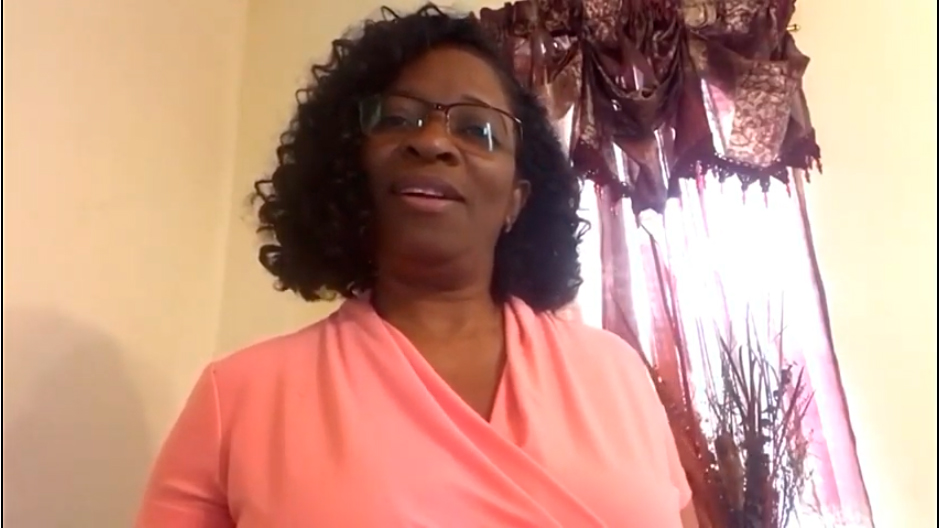COVID – 19 Is Stripping Away Safe Havens
COVID-19 showed up suddenly and stripped away from many victims of abuse the safe havens their jobs provided. I wonder what it is like waking up one cold morning, finding yourself trapped in the same space with your abuser, not knowing when the prison sentence will end, or when the curfew will be lifted. Were you ever in a situation where you were at work all day and when it was time to return home, you were sad and wished you didn’t have to go home? I’ve been there a few times my life.
In River Never Smooth: Reclaiming Power After Abuse, I recap the experience I had being at home some nights, longing for the dawn of a new day. My then husband and I were hardly ever home at the same time, but whenever we were, there were frequent quarrels and even fights over one thing or another. When he wasn’t there I recall looking nervously over my shoulder, wondering, When will he be in? and What mood will he be in? I would wake up early in the morning to prepare for work. My children were young at the time, so after taking care of their needs, and leaving them with my mother, I would set out for work. It was strange. In contrast to being tense and even afraid while at home, once I left for work, I would feel light-hearted. Many times, I was first person at work. I had some wonderful co-workers with whom I’d often laugh and joke. On the job, I was a different person, and sometimes I would even marvel at my split personality. However, that thick black cloak of sadness and despair engulfed me whenever I realized that the time to return home was approaching.
Living with an abusive partner, and being unhappy at home, you literally dread having to return there, and that feeling of dread takes many forms, including headaches, anxiety, bouts of tiredness, depression, and many other symptoms. So, imagine what effects the consequences of the COVID-19 situation is having on many victims of abuse. If you find yourself in this situation – longing for the safe haven of your job, instead of the prison of your home, you may be in an abusive relationship and you need to seek help. Leaving abusive relationships is never easy, but you have to remember that abuse thrives on silence. Take one step at a time to break that silence!
You can start admitting where you are in your relationship by asking yourself the hard questions. Am I in denial? Is John abusing me? What did I do to make him hurt me last night, and even if I did something I shouldn’t have, did that give him the right to hurt me? Why does she always blame me when things don’t work out for her? Why does she keep calling me names? When you answer truthfully, then ask yourself what you should do about it. After you have your answer, start thinking strategically in order to rid yourself of the current situation.
In an article titled: “Unsafe at Home: Virus Stirs Domestic Violence Fears,” RJ Vogt https://bit.ly/3e6cqBz reminds victims that even though many businesses are currently closed due to the COVID-19 situation, people must remember that there is always help for those who are being abused. Among the variety of tips, the article noted that hotlines are still operating, (1-800-799-7223), and orders of protection are still being issued.
Sadly, with schools closed, this situation has also impacted children, resulting in them spending unending hours with their abusers. This is a call for parents, family members, and friends to be aware. Listen to children. For the most part they are not lying when they tell you that an adult or someone else is touching them inappropriately or being unkind to them. Take immediate action!
If you have friends and loved ones whom you know are living in abusive relationships, try to keep in touch. While social distancing prevents in-person visits, utilize other forms of communication and connection, like the telephone, email or social media. Remember, however, that you must exercise caution. Even while making telephone calls you need to be aware that abusers tend to react violently when they realize their behavior is being exposed, or they are being stripped of their power. It is unwise to be pushy and demanding. Also remember that the victim may tend to distance herself from you if she senses that you are pushing her to leave the relationship. But family members and friends can help in many ways, including listening, being nonjudgmental, expressing care and concern about the victim’s safety, and asking about ways in which they can help. Shawn Meghan Burn, Ph. D., in her book, Unhealthy Helping, advises that when victims share with you, believe them, and show sympathy.
Being kind to someone – especially a victim of abuse – at a time when COVID-19 has robbed that person of freedom and a safe haven, may save a life, bring light to someone’s eyes, brighten that person’s day, and propel him towards taking healthy steps in his relationships. In so doing, instead of him dreading the thought of going home after a hard day’s work, home will become sweet once again.
